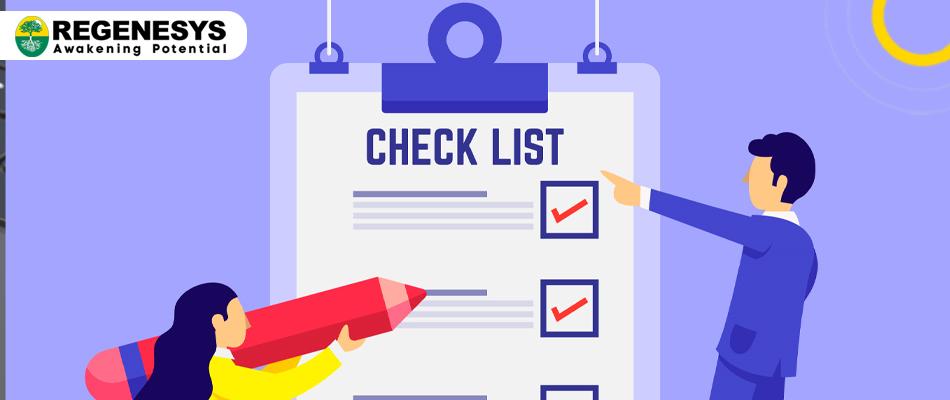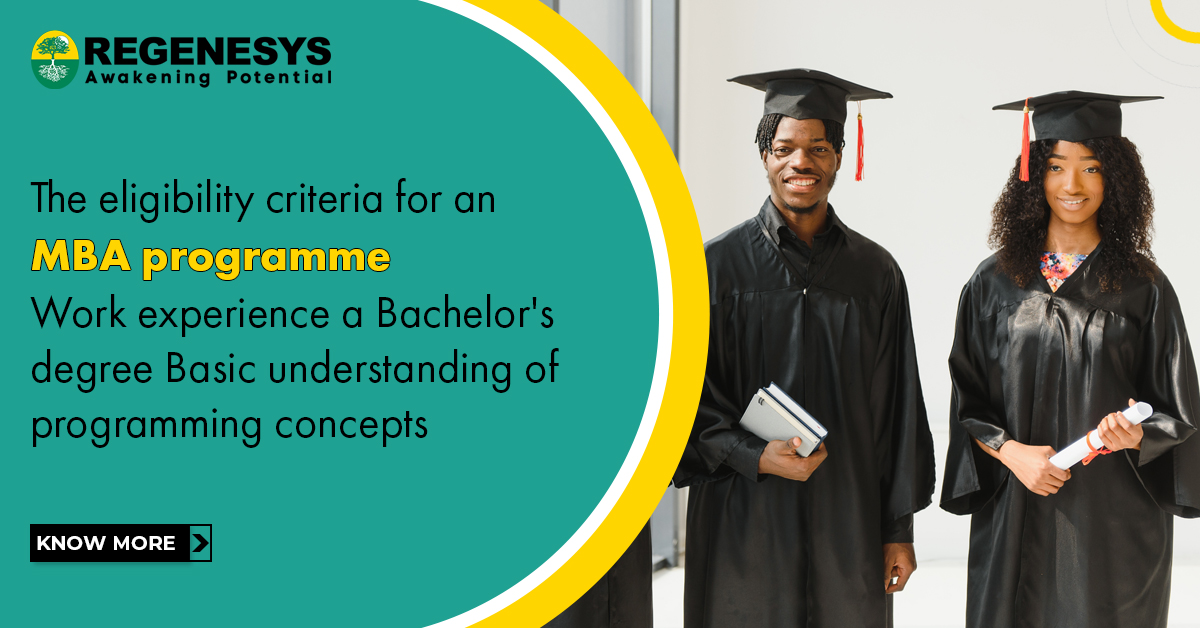Are you considering pursuing a Master of Business Administration (MBA)? If so, you may wonder if you can apply for an MBA programme and what the programme’s eligibility criteria might be.
The eligibility criteria for an MBA programme vary between business schools or institutions. However, there are some general eligibility requirements that most MBA programmes follow.
In this article, let us explore the eligibility criteria for a Master of Business Administration and who qualifies to pursue an MBA degree.
Table Of Contents:
- What is an MBA?
- Eligibility Criteria for an MBA Degree
- Who is Eligible for a Master of Business Administration?
- Conclusion.
- Frequently Asked Questions.
What is an MBA?
MBA – Master of Business Administration is a highly acclaimed postgraduate degree that has gained immense popularity recently. An MBA is an extensive programme that equips students with the necessary skills and knowledge to excel in business.
An MBA degree focuses on developing management, leadership, finance, marketing, and entrepreneurship skills. It is a highly sought-after programme that provides students with the necessary business acumen to excel in a competitive business environment.
Also Read: What is a Master of Business Administration Programme (MBA)?
Eligibility Criteria for an MBA Degree
Professionals who have already gained some work experience and graduates who have completed their undergraduate degrees can pursue an MBA. However, there are some specific requirements that you will need to meet to be considered for admission into an MBA programme.
Now, let’s dive into the general eligibility criteria for an MBA degree.
Educational Qualifications
The first and foremost requirement to pursue an MBA programme is a bachelor’s degree from a recognised university. The domain of study does not necessarily have to be related to business, but having a background in business, economics, or finance can be an added advantage.
Work Experience
Most business schools prefer candidates with work experience, as it demonstrates their practical knowledge of the business world. Therefore, applicants with 2 to 3 years of work experience are generally preferred. However, some MBA programmes do not require work experience, and fresh graduates are also eligible to apply.
GMAT/GRE Scores
Most business schools require GMAT or GRE scores as a part of their admission process. These standardised tests measure a candidate’s quantitative, verbal, and analytical skills. A high score can increase the chances of admission to a top business school.
English Language Proficiency
As most students prefer to pursue their MBA abroad, language proficiency tests play an imperative role. Thus, applicants need to demonstrate their proficiency in the English language by providing scores on tests such as TOEFL or IELTS. The minimum score requirement varies from institution to institution, but most programmes require a minimum score of 90 on the TOEFL or 6.5 on the IELTS.
Letters of Recommendation
Business schools require applicants to submit letters of recommendation from their employers or professors. The recommendation letter should highlight the candidate’s potential, academic capabilities and work experience.
Personal Statement/Essay
Most business schools require applicants to submit a personal statement or essay that describes their career goals, motivation to pursue an MBA degree, and how an MBA degree aligns with their aspirations.
Also Read: Can I get an MBA without a Degree?
Who is Eligible for a Master of Business Administration?
Depending on the type of MBA programme you select, different criteria are required to apply for it. In addition, the eligibility for a Master of Business Administration (MBA) varies from one institution to another.
Professionals with Work Experience
Most MBA programmes prefer candidates who have some work experience. This is because MBA programmes are designed to help working professionals enhance their skills, knowledge, and expertise to advance their careers.
Work experience in the relevant field gives you a better understanding of the industry and its challenges. It also helps you relate better to the coursework and apply your learning to real-world situations.
The ideal work experience for an MBA programme varies from one institution to another. For example, some institutions prefer candidates with a few years of work experience, while others require a minimum of five years. Therefore, you must check with the institution you’re interested in to determine their requirements.
Graduates with Relevant Degrees
Most MBA programmes require candidates to have an undergraduate degree from an accredited institution. The degree can be in any field, but having a degree in a relevant field such as accounting, finance, economics, or business can give you an edge over other candidates.
Some MBA programmes have specific GPA requirements that candidates must meet to be eligible for the programme. The minimum GPA requirement varies from institution to institution, but most programmes require a minimum GPA of 2.5 or higher.
Finally, it is essential to note that some MBA programmes may have additional eligibility requirements. For example, some programmes may require applicants to have completed specific prerequisite programmes, such as accounting or statistics. Therefore, it is vital to research the particular requirements of the programmes you are interested in to ensure you are eligible to apply.
Both professionals and graduates can pursue a master’s in Business Administration. However, there are specific requirements that you will need to meet to be considered for admission into a programme. These may include having a bachelor’s degree, a minimum GPA, professional experience, and submitting your GMAT or GRE scores. Additionally, it is vital to research the specific requirements of the programmes you are interested in to ensure you are eligible to apply.
Also Read: Is an MBA a Good Career Option?
Conclusion
The eligibility criteria for a Master of Business Administration (MBA) are a multifaceted consideration considering various factors. While specific requirements may vary among institutions, there are standard criteria that aspiring MBA candidates should generally fulfil.
Thus, it is essential for prospective MBA candidates to carefully review the specific eligibility criteria of the programmes they are interested in, as requirements can vary widely.
Are you considering an MBA in South Africa? Learn more about eligibility criteria requirements by visiting our website at Regenesys Business School, South Africa.
Good luck on your journey to pursuing an MBA!
FAQs – Frequently Asked Questions: Who is Eligible for a Master of Business Administration?
Do I need a specific undergraduate degree to be eligible for an MBA?
Answer: Most MBA programmes accept candidates with diverse undergraduate backgrounds. While a business-related degree may be advantageous, it’s not always a strict requirement.
Is work experience necessary for MBA eligibility?
Answer: Many MBA programmes prefer candidates with work experience, especially for Executive MBA or part-time programmes. However, full-time MBA programmes also accept candidates directly from undergraduate studies.
Are there age restrictions for MBA eligibility?
Answer: Generally, there are no specific age restrictions for MBA eligibility. MBA programmes often focus on the candidate’s qualifications, experience, and potential for contributing to the programme.
What are the entry requirements for the Regenesys MBA programme?
Answer: The entry requirements for the Regenesys MBA programme are:
- Relevant work experience.
- Relevant postgraduate qualification on NQF Level 8.
Click here to explore the entry requirements for the Regenesys MBA programme.
What is the programme structure of the Regenesys MBA programme?
Answer: The Regenesys MBA programme is an NQF Level 9 qualification with 225 credits. This 2-year qualification comprises ten compulsory modules, two electives and a research dissertation.
Visit our website @ Regenesys Business School for more details about the MBA programme structure.







